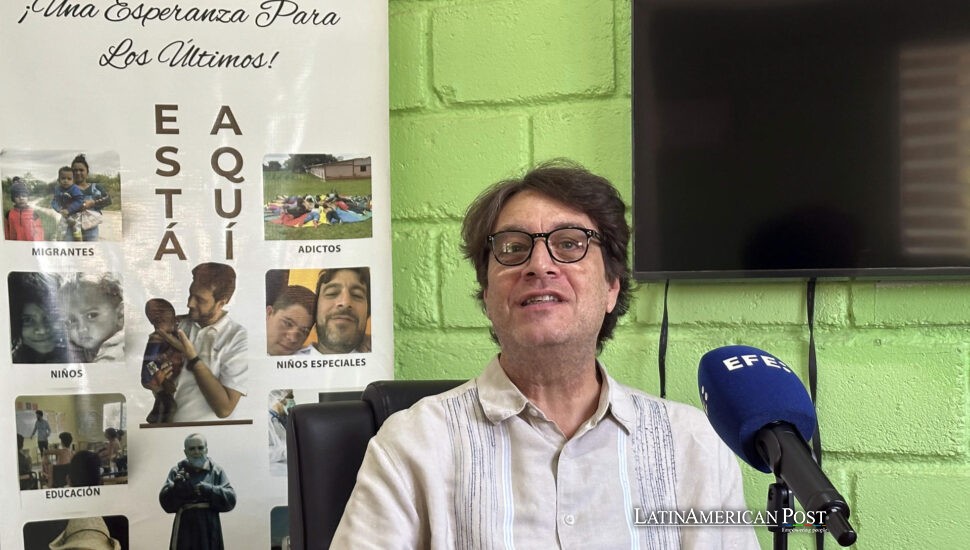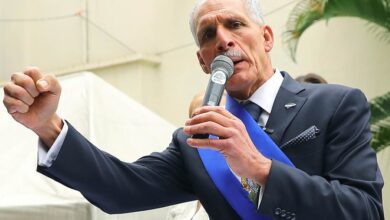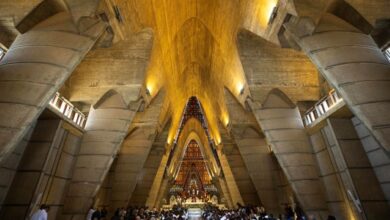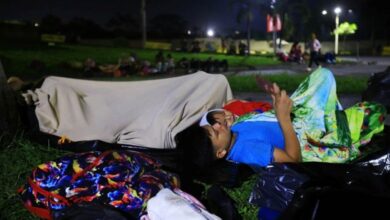Honduras Embraces Charitable Italian Missionary Who Thought He Was in Africa

When Italian priest Ferdinando Castriotti first imagined serving abroad, he believed Honduras lay somewhere in Africa. Two decades later, he proudly carries a Honduran passport, founding a charitable foundation for impoverished communities and finding deep purpose in the country’s heartland.
A Serendipitous Path to Central America
In 2002, Catholic priest Ferdinando Castriotti, originally from Venosa in southern Italy, yearned for a change of scenery. According to comments he made to EFE, he initially assumed he would head to Africa—particularly after hearing Honduras’s 1982 World Cup squad included players of African descent. Only when Castriotti told his mother about the new assignment did the pair realize that Honduras was actually in Central America. “It was a real fiasco,” the priest joked. “I couldn’t speak a word of Spanish, and yet, within a month, I had to leave.”
By 2007, Castriotti stepped onto Honduran soil, thanks to a fateful conversation in Rome involving a friend of Cardinal Óscar Andrés Rodríguez. That encounter steered him away from other mission possibilities—like Chad or Jerusalem—and straight to Tegucigalpa. “I just said, ‘Give me a contract, and I’ll sign for Honduras,'” he recalled with a laugh. Passionate about soccer and guided by a profound sense of purpose, he arrived ready to help whoever needed him.
Before all this, he had served as a parish priest and university instructor in Italy, witnessing up close the challenges of unemployment and poverty. His experiences convinced him that direct community outreach could be transformational. So when he heard about local needs in Honduras—particularly among rural families—he saw an ideal opportunity to put faith into action.
Foundation Born to Help
Cardinal Rodríguez told Castriotti he could pick anywhere in the country to settle. Rejecting the hustle of Tegucigalpa, the priest headed east to El Paraíso, close to the Nicaraguan border. He soon discovered a region of rolling hills and exuberant nature but also pockets of hardship, limited access to education, and scarce employment options. By 2011, his experiences spurred him to create the Fundación Alivio del Sufrimiento (Relief of Suffering Foundation), an organization he leads to this day.
Castriotti recounted to EFE how the foundation coordinates multiple projects with national and international partners, focusing on health, education, job training, and migrant support. “We intend to address the fundamental reasons for poverty,” he said. The plan involves more than donating supplies. It is about constructing routes to self-sufficiency. For example, because of this undertaking, three teenagers from Honduras studied advanced subjects in Italy. Their futures appear more promising than what they formerly expected.
At times, Castriotti’s path has taken him beyond Honduras, including a return to Africa in 2012. But ill health cut short that venture. He came back to Honduras in 2017, where he now holds triple citizenship—Italian, Chadian, and Honduran. “I no longer celebrate Mass or run a parish,” he noted, “I devote myself entirely to the foundation.” Despite challenges, he remains deeply attached to the region’s climate, landscapes, and, most of all, its people.
A Proud Honduran Identity
Though physically tall and fair-skinned—1.90 meters with a pale complexion—Castriotti jokes about how that appearance sometimes surprises locals. In 2012, Honduras’s legislature granted him citizenship. “When I travel, I proudly use my Honduran passport,” he said, adding that anyone who jokes he doesn’t look Honduran misunderstands. “We Hondurans don’t ‘look’ anything—we just are,” he teased, underscoring the diversity within the country he’s come to love.
Even after two decades, Castriotti vividly recalls that chance meeting in Rome when, upon hearing nobody else wanted to go to Honduras, he quickly volunteered. “It was proof to me that God works in mysterious ways,” he told EFE, smiling. “I thought I’d be in Africa, but God had other plans.” Meanwhile, his mother—initially worried about the distance—faced the reality of her son flying across the Atlantic to learn Spanish from scratch.
Through all the ebbs and flows, the foundation’s track record speaks for itself. In addition to the educational programs, the group offers basic healthcare services, especially for children who otherwise lack medical resources. They also assist migrants traveling through or returning from precarious border crossings. According to supporters, the foundation has become a lifeline for families ignored by government safety nets.
Volunteers praise Castriotti’s humility – also his commitment. A local teacher stated he is not flashy, nor does he seek credit. He sees a need that is unmet, then he acts to fill it. In a country that grapples with poverty, corruption, as well as emigration, this approach finds support. With each scholarship or job placement, Castriotti hopes to carve out a better local life for those once tempted to journey north.
Asked if he regrets not staying in Italy or heading to Chad, he shakes his head firmly. “Italy has many priests,” he reasons. “My heart told me to be somewhere else—somewhere I could do more.” Over time, that sense of mission has only solidified, culminating in the pride he feels calling himself Honduran. “We all have an identity beyond appearances,” he said, “Mine is anchored here.”
Also Read: Guatemalan Migrant’s Tree-Top Eight-Hour Defiance
As day breaks in El Paraíso, Castriotti rises to handle foundation tasks—coordinating supply distributions, checking in on new training programs, and listening to local pleas for help. About his journey, he says fate acted strangely. The result is a fulfilled life mission – that builds a legacy of compassion plus empowerment. It goes on to thrive in the highlands of Honduras.





